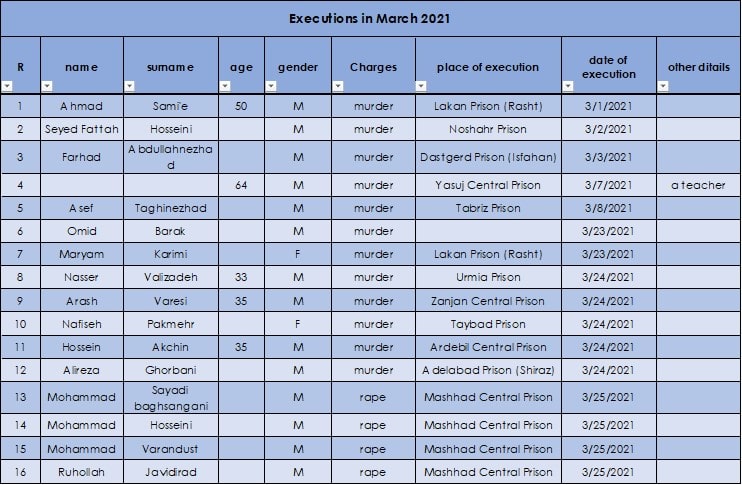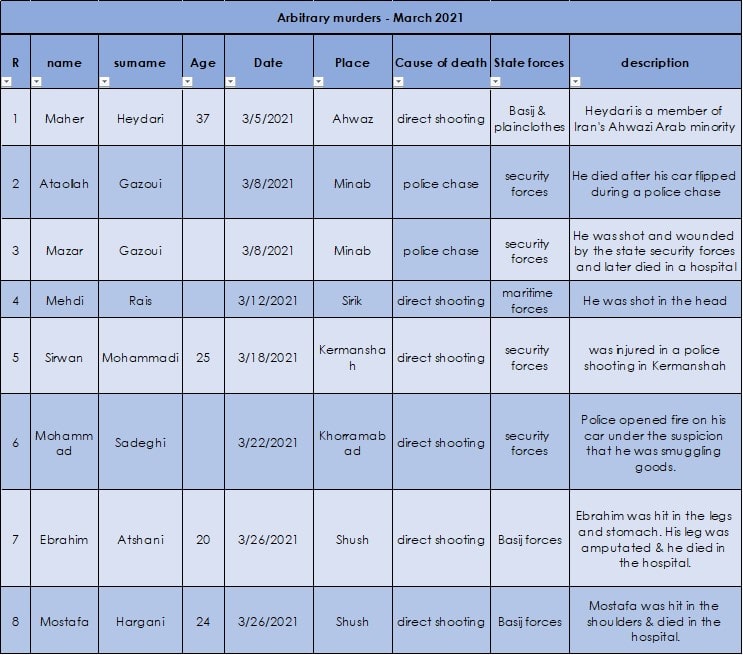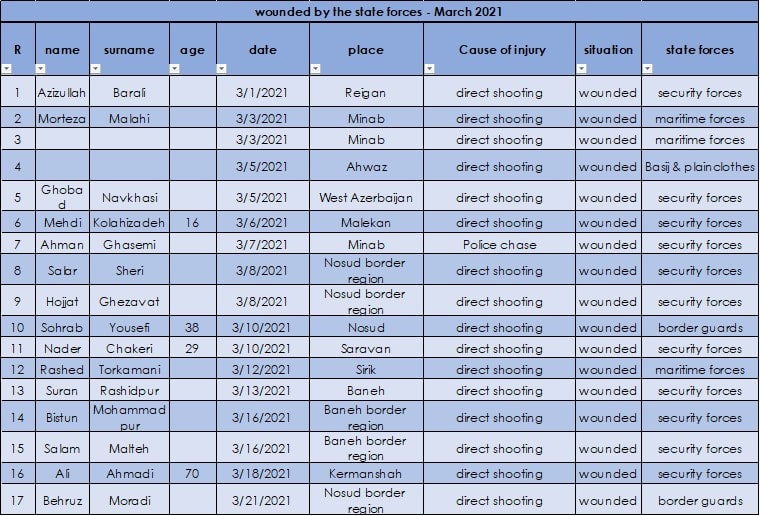Iran-HRM – On the eve of the Persian new year, many political prisoners and dissidents were not only denied Nowruz leave, but they were exposed to additional pressure.
Several political prisoners including peaceful activists and dissidents were sent to remote prisons as a form of additional punishment in the middle of their prison terms.
Iranian judicial authorities, while putting more pressure on prisoners, intend to keep dissidents away from their homes and families to prevent them from their peaceful activities.
The practice of sending prisoners into prison exile is also unlawful and could be challenged in the Supreme Administrative Court, as it violates Note 3 of Article 513 of the Code of Criminal Procedure, which states that prisoners should serve their terms in prisons close to where they live.
Exile of the political prisoners as a form of punishment makes it difficult for their families to make weekly visits.
In other words, this form of punishment also puts pressure on the families of the prisoners, thus violating the “principle of personal punishment” for these political prisoners.
18 Jailed dissidents at Raja’i Shahr Prison of Karaj wrote an open letter on March 21, protesting the exile of political prisoners and opening new cases against them.
The letter, a copy of which was sent to Iran Human Rights Monitor, states: “during the last months, despite all the claims by the highest judiciary authorities about complying with the rights of the political prisoner, what is really happening on daily basis, not only is not a bit of improvement but also they have intensified suppression by making the prisoners conditions even more inhumane. Their aim is to intimidate people of Iran and political activists to comply with their suppressive policies by making their conditions at prison even worse.”
Iran Human Rights Monitor has documented several cases of political prisoners and prisoners of conscience being sent to exile in recent months.
On March 22, civil activist Saeed Eqbali was transferred from Evin Prison to Raja’i Shahr Prison in Karaj, west of the capital Tehran.
Political prisoner Atena Daemi was abruptly banished to Lakan Prison of Rasht on March 16, 2021. The forcible relocation of Atena Daemi took place on the eve of the Persian New Year on March 20.
Atena Daemi was among the signatories of a letter protesting forcible relocation and banishment of political prisoner Maryam Akbari Monfared to the Prison of Semnan.
On March 9, Maryam Akbari Monfared was abruptly relocated from the women’s ward of Evin Prison and banished 110 miles east to the central prison in Semnan.
On January 24, 2021, political prisoner Golrokh Iraee Ebrahimi, was transferred from Qarchak Prison to the central prison in Amol, Mazandaran province in northern Iran, far from her parents.
Executions
At least 16 executions were carried out in March. Two of those executed were women. 12 prisoners were executed for murder, and four for rape.

Arrests
In March, at least 400 people were detained for various reasons, including peaceful activities, attending a private party, modeling, participating in Nowruz celebrations, participating in protest rallies, or touring.
Political arrests have been made on charges such as participating in protests over the killing of fuel traders in Saravan or collaborating with Kurdish dissident groups.
prisoners
Iran’s judicial system continued to pressure detainees through denying them adequate medical treatment.
Political prisoners Mohammad Nourizad, Mostafa Fallah Kheirandish, Nasser Fahimi, Afshin Bayemani, Fatemeh Mosanna, Hamzeh Darvish, Abolhassan Montazer and Omid Amjadkhah are among those who have been denied medical treatment despite their serious health conditions.
Dozens of prisoners also went on hunger strike last month to protest the “exile and harassment of political prisoners” as well as the violation of prisoners’ basic rights.
In March 2021, a group of 34 political prisoners announced a hunger strike for three days since March 21, coinciding with the Persian new year, Nowruz in protest to “ruling despots” in Iran and against the killing of protesters, and execution of minority group members.
The prisoners also announced their solidarity with workers, teachers and pensioners who have been protesting for months about government treatment of their demands amid economic hardship and skyrocketing inflation.
Arbitrary murders
At least eight civilians were killed in March by the regime’s armed forces, including the maritime forces, police, Basij and plainclothes.

Indiscriminate firing by the state forces left at least 17 civilians injured last month in various Iranian cities.

 Shabtabnews In this dark night, I have lost my way – Arise from a corner, oh you the star of guidance.
Shabtabnews In this dark night, I have lost my way – Arise from a corner, oh you the star of guidance.


